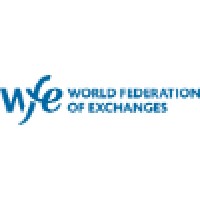
Grygo is the chief content officer for FTF & FTF News.
Exchanges across the planet are getting on board with the environmental, social, and governance (ESG) push, a stark contrast to the backlash against asset managers and others who are embracing ESG policies and investment strategies.
This is a new finding of the World Federation of Exchanges (WFE), which says that the ESG embrace is the main takeaway from its ninth Annual Sustainability Survey. The 63-year-old global industry association represents exchanges and clearinghouses.
The WFE published the survey for “exchanges and central clearing counterparties,” and has declared that “the industry has reached a milestone in collective efforts to achieve sustainability.”
Exchanges reported that the main challenges in meeting their ESG goals “were external factors such as limited resources for implementation, unreliable ESG data, and a lack of standardized reporting frameworks for promoting sustainability. The most frequently reported motivation for ESG engagement was sustainability concerns and opportunities for business expansion,” according to the WFE.
“The report reveals that green bonds persist as the most popular ESG product. Three exchanges have also introduced green equity, relying on either their own standards or those established by national regulators,” according to the WFE. The discovery “indicates that this year – for the first time since the surveys began – every exchange that responded participated in at least one ESG initiative and engaged in at least one WFE Sustainability Principle.”
“The report also shows that the number of exchanges reporting engagements in at least a dozen of the listed ESG initiatives rose from eight last year to 16 this year, and two exchanges engaged in all 14 initiatives. A further 12 exchanges also reported having put in place net-zero targets,” according to the WFE. “There was also an annual increase in the average number of initiatives implemented per exchange from 8.4 to 9.2.”
“Exchanges have continued to adopt the WFE’s Sustainability Principles – with 70 percent of survey respondents implementing initiatives that corresponded to all five principles,” according to the WFE.
 “The industry has also come together to create the Green Equity Principles, the first exchange-wide agreement on what is green. We will continue as an industry to champion ESG in financial markets as we make the crucial move towards a sustainable and inclusive global economy,” says Nandini Sukumar, CEO of the WFE, in a prepared statement.
“The industry has also come together to create the Green Equity Principles, the first exchange-wide agreement on what is green. We will continue as an industry to champion ESG in financial markets as we make the crucial move towards a sustainable and inclusive global economy,” says Nandini Sukumar, CEO of the WFE, in a prepared statement.
“The survey found that, of the 58 percent of exchanges reporting their own carbon emissions, 68 percent cover Scopes 1, 2, and 3, which reflects a comprehensive approach to measuring and managing their carbon footprint, considering both direct and indirect emissions throughout their value chain,” WFE officials say.
The report finds that key WFE members are taking a variety of ESG steps:
- “Borsa İstanbul (BIST), which has a history of creating sustainability-themed indices, introduced the Sustainability 25 Index last year, comprising companies with exceptional sustainability performance, market capitalization, and liquidity;”
- Hong Kong Exchanges and Clearing Ltd. (HKEX)’s Sustainable and Green Exchange (STAGE) “welcomed more sustainable and green finance products this year and now features data and information on 100-plus green, social and sustainability (GSS) bonds, as well as ESG ratings for more than 720 companies. The platform remains a central hub for data and information on sustainable and green finance products in Asia;”
- “Several South African financial institutions have listed green, social, and sustainability-focused bonds and ETFs on the Johannesburg Stock Exchange (JSE). FirstRand Bank and Nedbank are funding green and eco-friendly projects, while Standard Bank aims to finance affordable housing for female borrowers;”
- “With the growing investor interest in ESG, the Korea Exchange (KRX) is increasing its range of ESG products. It has introduced a sustainability-linked bonds segment to overcome the limitations of existing Socially Responsible Investment (SRI) bonds and to back companies’ sustainability initiatives;” and
- “By the end of 2022, the China Securities Index, a Shanghai Stock Exchange (SSE) subsidiary, had released 122 ESG-related indices. There were 77 products tracking these indices with assets under management (AUM) over RMB 100 billion (USD 14.4 billion). The SSE has also supported low-carbon industries through equity financing, with eight new energy, energy-saving, and environmental protection sector companies listed on the SSE STAR Market in 2022;” and the
- “Singapore Exchange (SGX) launched the Sustainable Fixed Income Initiative (SFI Initiative) in November 2022. SFI Initiative is designed to help investors identify green, social, and sustainable fixed-income securities that meet recognized standards.”
The WFE says that 54 exchanges participated in the survey, including five derivatives-only exchanges.
The full report can be found here: https://bit.ly/3Cquzrd
Need a Reprint?